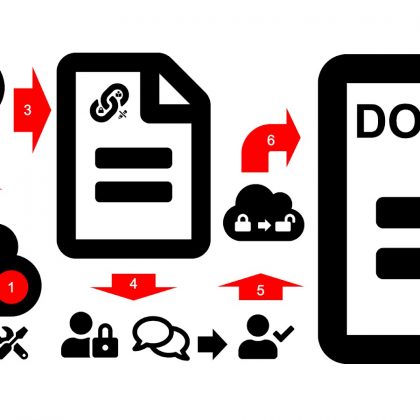GLJ Editorial Message for Issue 22.3
Esteemed Friends of the German Law Journal,
It’s Special Issue time again!
Today we are excited to deliver to you another one-of-a-kind Special Issue of the German Law Journal . As you know, it is one of the Journal’s particular features to entrust scholars with the composition of a complete issue, giving them the opportunity to bring together diverse and multi-facetted research under a common theme, working together closely with one of the Editors of the GLJ. This collaboration highlights another distinguishing feature of the GLJ: the role of the Editors, who not only perform the double-blind peer reviews of all submitted articles but more importantly actively discuss and shape the Journal’s content and direction—which then gets infused into the reviews again. This Special Issue is no exception, and we are grateful to our Editorial Board member Matej Avbelj for working closely and diligently with the guest editors of this Special Issue to ensure we bring to you the quality content you expect.
***
The Special Issue aims at interrogating the judicial and extra-judicial challenges that arise from the complex EU administrative framework . This administrative framework can be characterized as both multi-level—arising from the vertical cooperation between EU and national authorities—and cross-level—arising from horizontal cooperation between national authorities themselves. Two key considerations have been the driving force behind this project: On the one hand, in the multi-level EU jurisdiction, there may be decisions affecting natural and legal persons which cannot be judicially reviewed in any effective way. On the other hand, in areas of extra-judicial cooperation, the lack of common standards or practices across Member States may undermine the effectiveness of EU policies and objectives. This Special Issue reflects on ways to overcome the current challenges of the multi-layered EU system of administrative cooperation—and seeks to prompt further research.
In Special Issue’s introduction, our guest editors Mariolina Eliantonio and Nikos Vogiatzis open the panorama for us and reflect on the current state of the debate, and on how the contributions in this Special Issue advance the existing literature on multi-level and cross-level cooperation. The collection itself then begins with the article by Emilie Chevalier and Olivier Dubos on transnational administrative acts. They offer a taxonomy of these acts before uncovering challenges in the availability of judicial review. Next, Luis Arroyo Jiménez focuses on a particular type of transnational administrative arrangement, namely the mechanism of mutual recognition. The Article unravels, among others, the problems that may arise in judicial review regarding procedure, the law that must be applied, deference, and standards or review.
Rui Lanceiro and Mariolina Eliantonio then shift attention to the Genetically Modified Organisms (GMOs) regime, which is characterized as a “playground” for multi-level administration, yet a “nightmare” for effective judicial protection. The level of complexity of the two main legal instruments in the field is particularly striking. Information sharing in the context of asylum policy is the focus of the article by Niovi Vavoula: The challenges for national courts in the aforementioned field of horizontal cooperation are explored. The next contribution adds the enforcement aspect to the picture: Shared inspection procedures is the focus of Maurizia De Bellis’ Article. Beyond effective judicial protection, De Bellis focuses on the inviolability of the home, protected by both the EU Charter and the ECHR.
The issue concludes with two contributions on extra-judicial cooperation. Natassa Athanasiadou and Nikos Vogiatzis explore the ‘EU queries’ scheme, a mechanism of extra-judicial cooperation between the EU and national ombud offices. A comparative examination with the preliminary reference reveals the differences between the two schemes, as well as the added value of the former. Lastly, Gabriele Cipriani’s article tackles the budgetary arrangements in the EU’s multilevel setting, with a particular focus on the role of the European Court of Auditors (ECA). The ECA’s role in improving accountability is particularly challenging, and a number of proposals are advanced to render the ECA’s work more relevant.
***
On other business, let me first use the opportunity of the publication of this marvelous Special Issue to guide your attention towards our ceterum censeo, the annual Call for Special Issue Proposals. The call is open until early September, so ample time to put together proposals showcasing your stellar scholarship!
***
There’s more news from the German Law Journal.
To make sure the GLJ remains your go-to Journal for cutting edge research available fully open access, with no financial barriers to authors or readers, the Editorial Board of the GLJ will meet again end of May; and even though it will be the second time that we will have to meet virtually, we are very much looking forward to another lively and fruitful discussion of the GLJs future development. So if you have any feedback or requests, any general ideas or suggestions for inter-institutional collaboration for the Editors, now is a good time to voice them!
As the academic year draws to a nigh, at least in the US, the leadership of past year’s Student Editors Team at Washington & Lee University Law School in Lexington, the academic home of the GLJ, turns over too. We would like to take the opportunity to thank the entire team for the marvelous work throughout the past (very difficult) year, and representatively send out kudos to the Executive Editor, Jac Andrade, and the Managing Editor, Anahita Mohtasham-Gharagozloo. At the same time, we warmly welcome the incoming Executive Editor, Scott Ingram, and Managing Editor, Zahra Asadi ! The passion, vigor and commitment of the student editors teams are not only a signature feature of the GLJ but, throughout the years, have been a bedrock for the operations and quality of the Journal—it cannot be overrated.
Moreover, we are very happy to announce that thanks to the efforts of our Editorial Board member Jud Matthews and in close cooperation with Russell Miller and the student editors in Lexington, a team of students from Penn State Law School will start to complement the student editor crew this summer—to help keeping up with the rising demands and workload of a professionally run open access journal.
So while we don’t lean back to let things take their own course, we ask you, our esteemed readers, to lean back and enjoy yet another exciting issue of the GLJ!
Warmly,
Emanuel V. Towfigh
for the Editors-in-Chief




